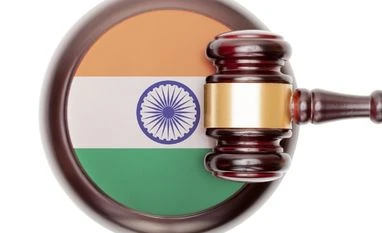The supreme Court on Thursday asked three internet search engines -- Google India, Yahoo India and Microsoft Corporation (India) Ltd -- to form own "In-House Expert Body" to scan and delete the literature and write-ups related to sex determination.
Directing setting up of such bodies, the bench of Justice Dipak Mistra and Justice R. Banumathi brushed aside the submissions by the three search engines that they may be spared from setting up of such in-house expert bodies as there is already a nodal agency set up by the government for the purpose.
The court said the declining sex ratio is a "disastrous signal for mankind" and Solicitor General Ranjit Kumar said: "It (literature on sex determination) can affect demography."
Reiterating its September 19, 2016 direction, through which a nodal agency was set up, the court in its order on Thursday said that the three search engines shall appoint their "In-House Expert Body", which shall take steps to see if any word or any key word shown in the internet has the potential to go counter to Section 22 of the Pre-conception and Pre-natal Diagnostic Techniques (Prohibition of Sex Selection) Act, 1994, and is deleted forthwith.
Section 22 of the 1994 act prohibits advertisements relating to pre-natal determination of sex and provides for punishment for its contravention.
The Centre had set up a nodal agency to act on any public information on advertisements promoting sex determination techniques/kits on the internet.
Counsel for the three search engines -- K.V. Viswanathan, Anupam Lal Das and Ruby Ahuja -- urged the court not to pass order for setting up of an the in-house expert body, as it may result into huge numbers of mails reaching them and could land them into cases.
More From This Section
As senior counsel Vishwanathan told the court that "our view of Section 22 of the 1994 Act is yet to be adjudicated", Solicitor General Ranjit Kumar said: "It (information on sex determination) can affect demography."
Allaying the apprehensions of the counsel appearing for the three search engines, the court said: "It is not a case of 'X' individual acting against 'Y' individual. No individual can go (to the court). It is an appropriate authority that alone can act under Section 22 of the Pre-conception and Pre-natal Diagnostic Techniques (Prohibition of Sex Selection) Act, 1994."
"Nobody will go to the criminal court," Justice Misra said pointing out that they are seized of the matter.
"Take a little step forward," said Justice Banumathi.
Earlier, in the course of the hearing, the court said that search engines must respect the Indian law and no material contrary to the Pre-Natal Diagnostic Techniques (Regulation and Prevention of Misuse) Act, 1994 should pop up during a generic research.
Observing that "the whole problem is that they (search engines) do not have respect for the law of the country", the court said that they must positively respond and Indian law must be respected.
Google India in a statement later said: "We have always been compliant and are supportive of removing paid content based on terms linked to gender selection tests. We have taken additional action to disable auto-complete predictions for relevant terms on our site and show a warning that tells users that pre-natal gender screening or testing is illegal in India."
)